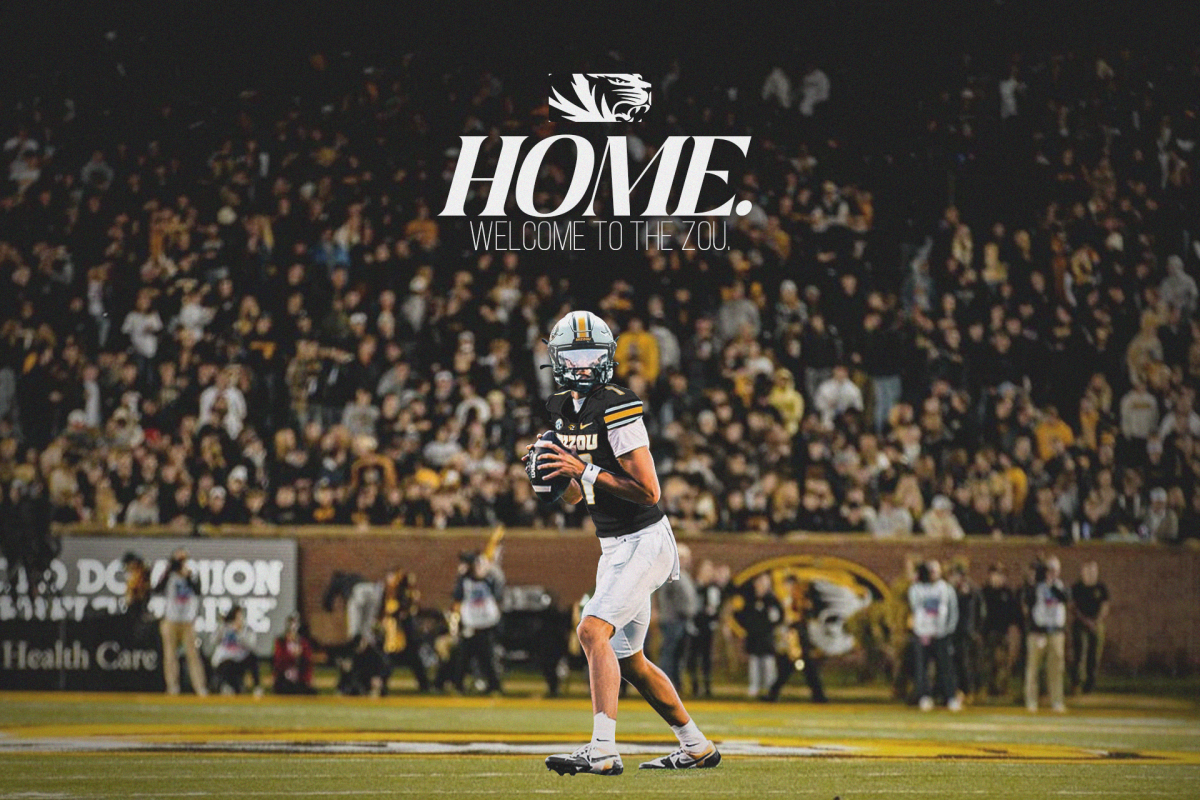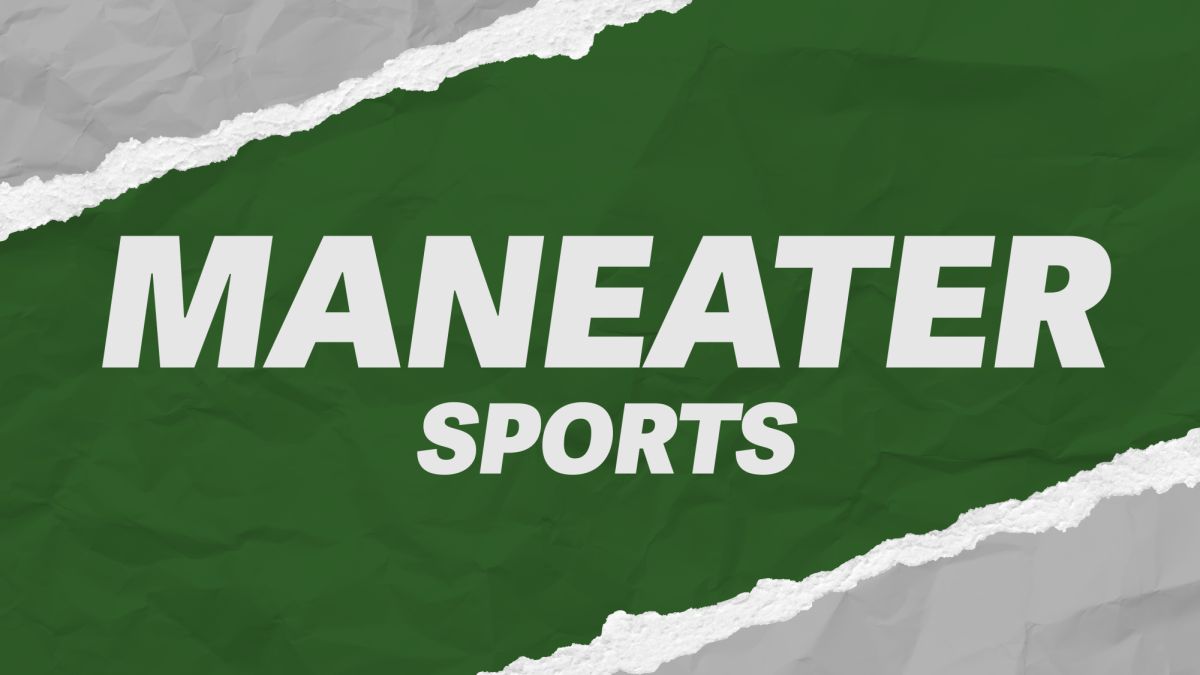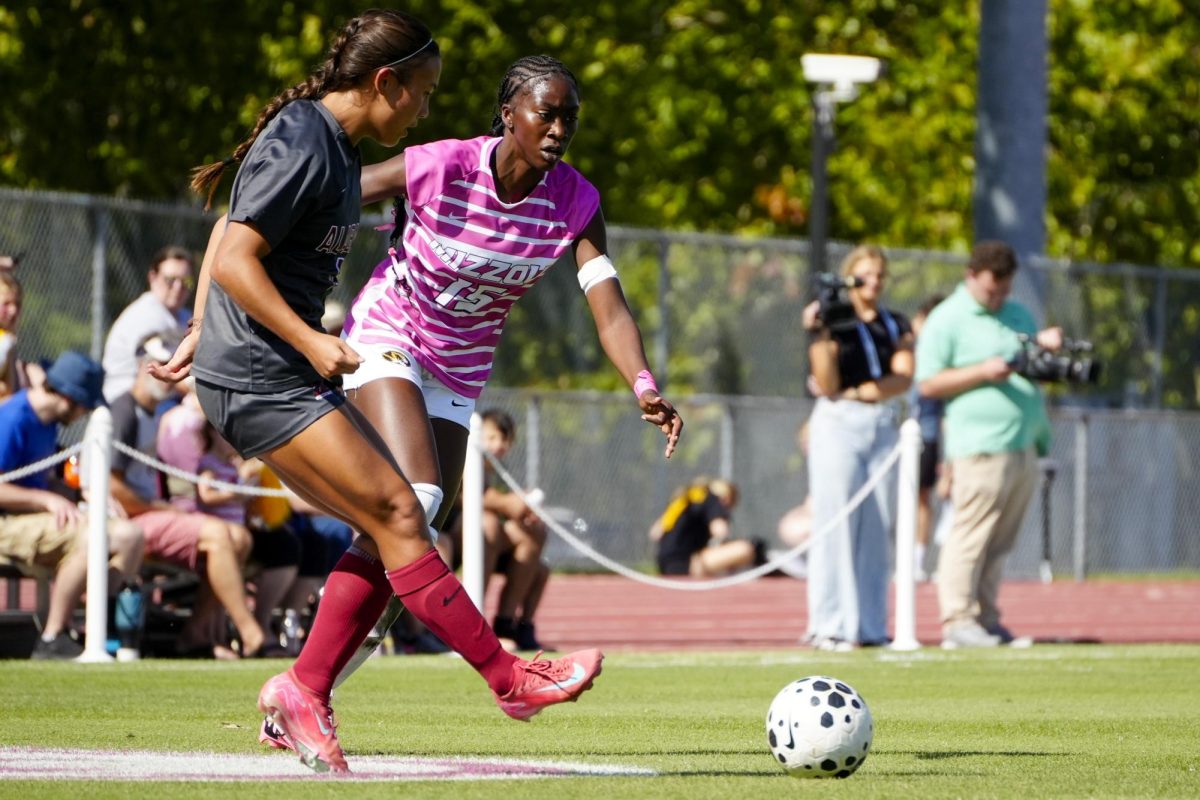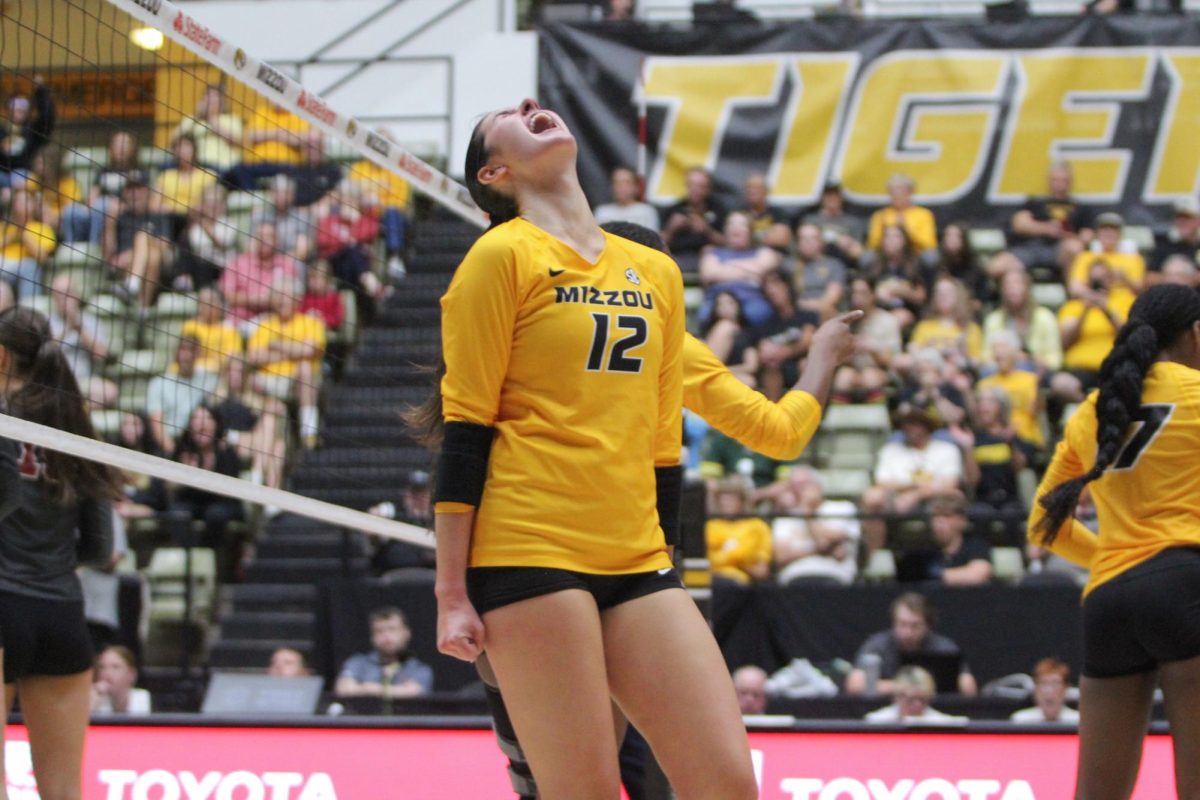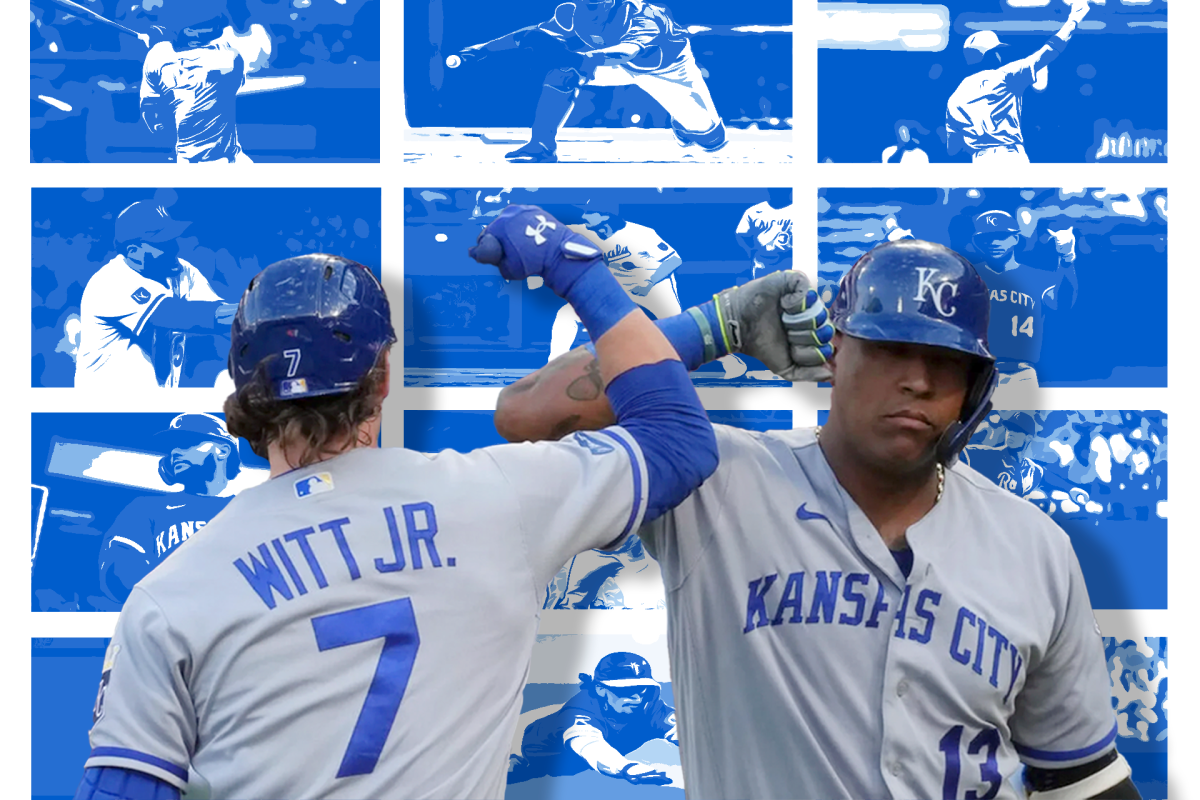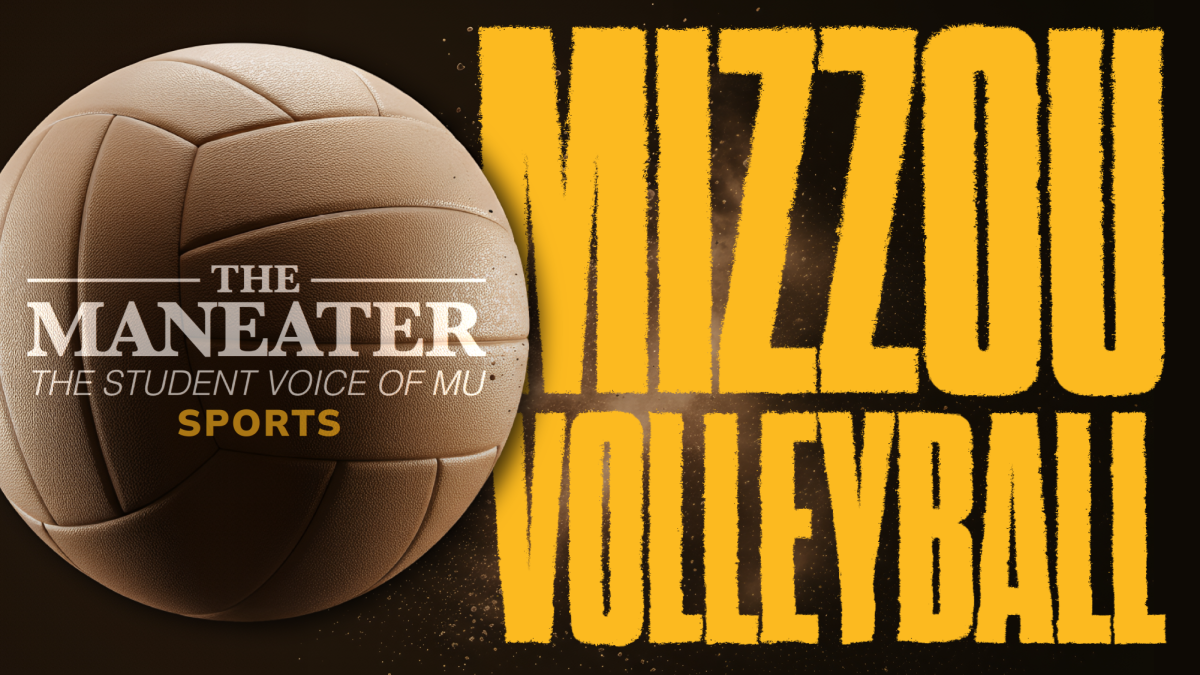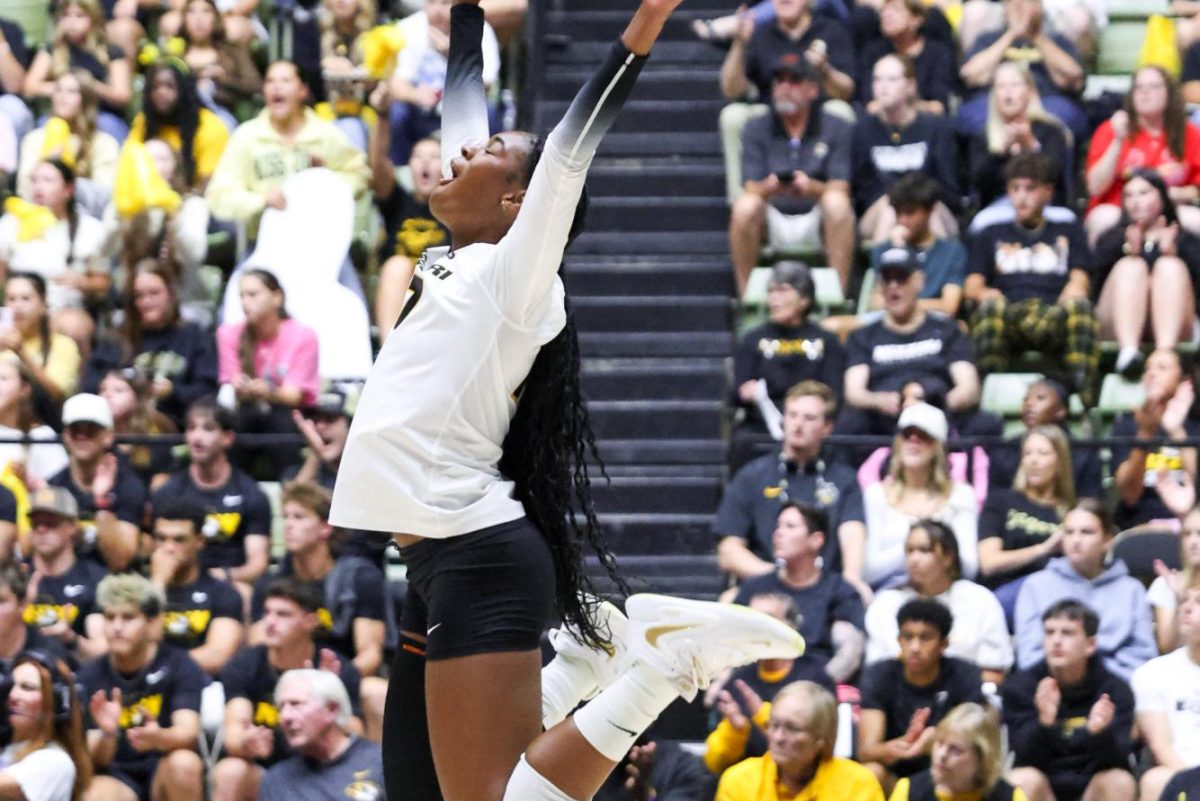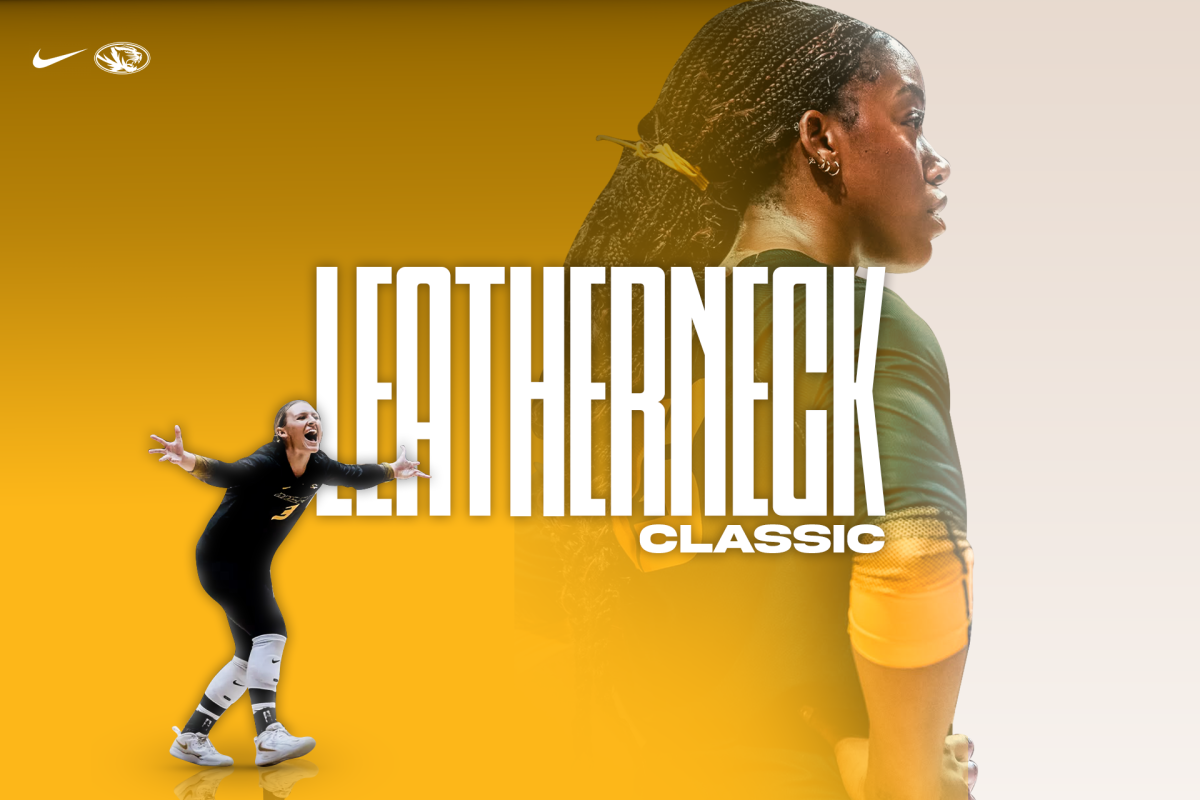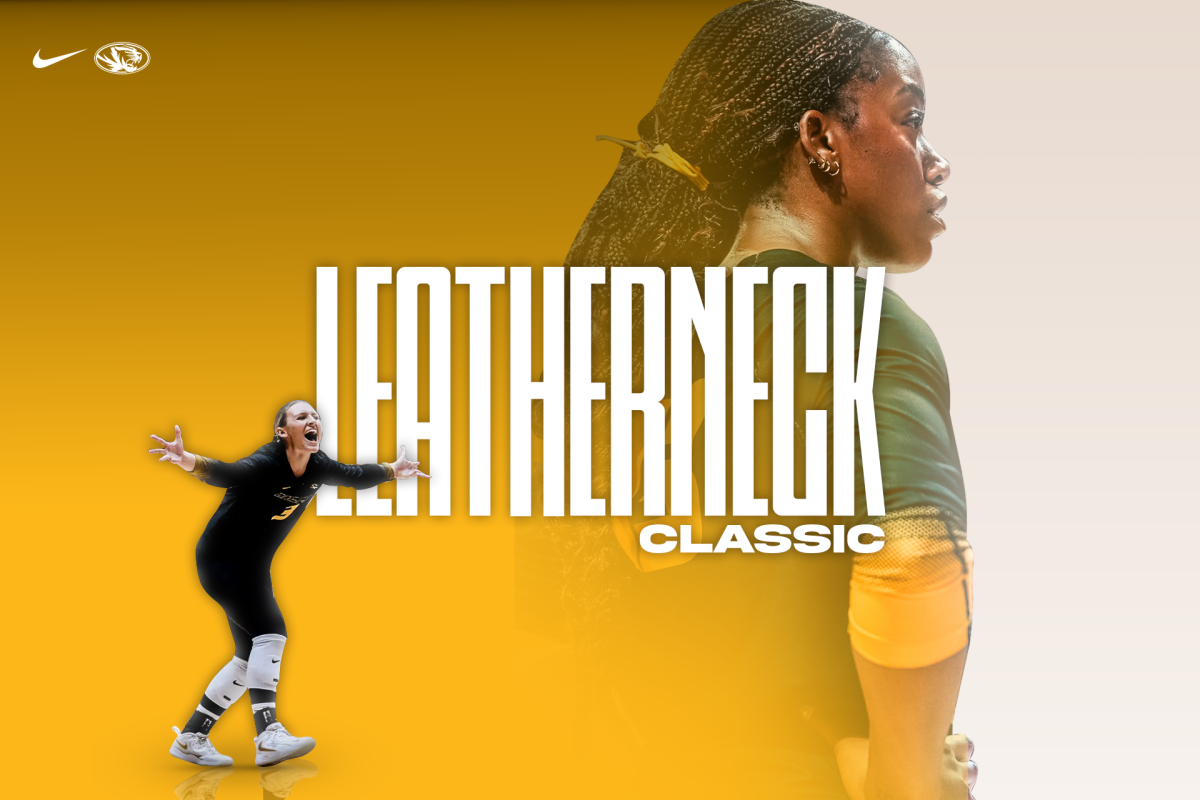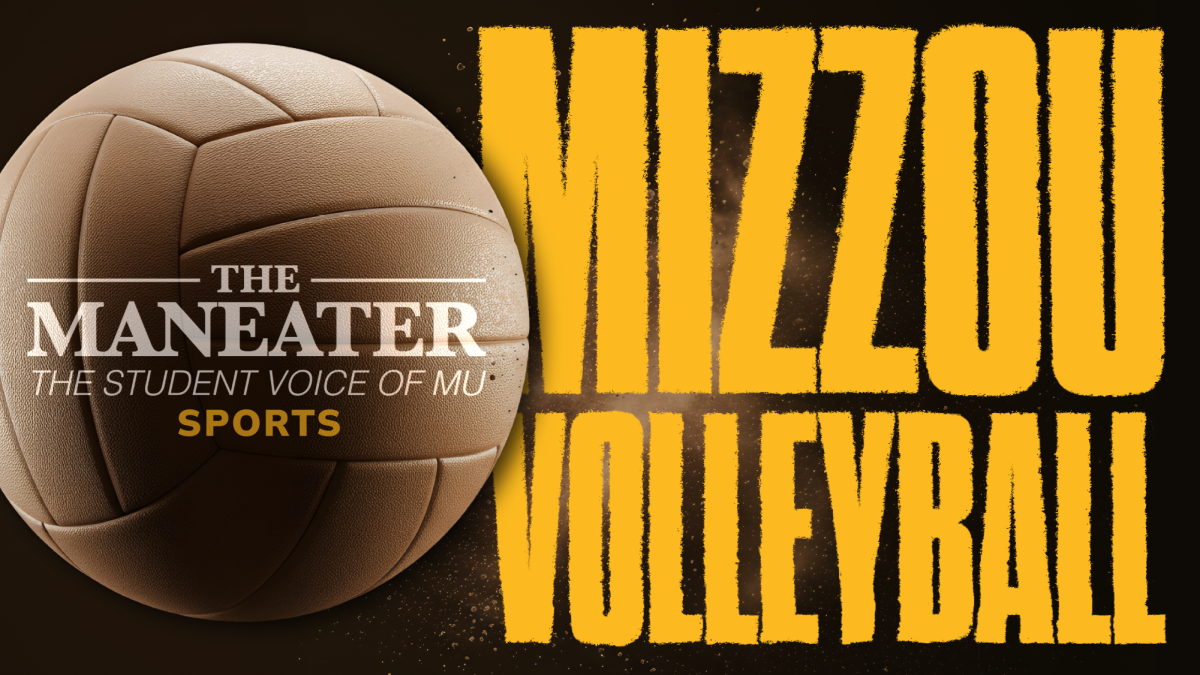It’s Tuesday afternoon, and assistant volleyball coach Matt Porter is here early, again. He’s at Hearnes Center, preparing equipment for practice.
The senior from O’Fallon matches coach Wayne Kreklow, donning a gray Missouri volleyball T-shirt, black shorts, gym shoes. Porter stretches and then zooms around the court, shagging errant volleyballs to the team’s setters.
Kreklow speaks before the first drill. Porter paces to the sideline, hovering near a monochrome ball cart. He quietly observes, cradling a ball in each hand as his elbow tucks one close to his body.
When he talks, every word is calculated, every thought is considered. The meanings of his words bear precision, the sum of effort. But here at Hearnes, he tosses volleyballs to players in need, saying not a word.
—–
In high school, he was shy. Just school and family. And sports.
Porter played baseball, basketball and soccer when he was younger, but he decided to stick with one sport in high school to keep focus on academics. He didn’t make the basketball team at tryouts like he had hoped, so he branched out. He played volleyball.
Porter improved with age, but his senior year stopped the progress; he suffered a stress fracture in his back.
He journeyed to physical therapy for three months. There, he realized his fascination with anatomy, discovering his desire to study physical therapy.
“It was a blessing in disguise, I guess,” he says. “I never would have thought about (volleyball) if I didn’t get injured.”
—–
The players ease through warm-ups, and Porter is gathered in a tight circle with Kreklow, the team’s two assistant coaches and Derek Koetter, the other student volunteer.
They’re in that same circle during timeouts in matches. Porter is right there, clean-cut, matching Kreklow, who wears a white polo and black dress pants. Porter is gripping his laptop in one arm, contributing whatever information he can to his coach.
Since he first asked something of Porter, Kreklow has known the coach’s assets. Porter adds energy and passion to the team, and he has a unique knack for analyzing opposing hitters and mimicking their tendencies in practice.
“He’s been invaluable,” Kreklow says.
—–
It was freshman year during one of the first practices.
Kreklow wanted Porter to block for him.
Porter lined up on the right side of the net, opposite of former hitter Paola Ampudia, one of the best in program history.
I’m going to screw everything up, Porter thought. He still had to prove himself to the team. He needed to show that he had the talent to help those players improve. He needed to show that he could do his job.
Kreklow lobbed a ball to the other side of the net. The team set it to Ampudia, who raised her arm and clubbed the ball. It ricocheted back at her.
Porter blocked her kill.
—–
Back at practice, the team pauses for a water break before the third drill of the afternoon. Porter races to collect balls and place them in the cart. He doesn’t need to hurry, though, because the players are still walking to the jugs.
“I always say I try to show my love through my actions more than my words,” he says. “I’m trying to prove that to my mom by getting through college, going to PT school, not letting them down or anything.”
—–
It was freshman year during one of the first practices.
Kreklow’s oldest memory of Porter.
Kreklow stood beside his wife, Susan, and Porter. He asked Porter to grab something for practice from the closet. Porter, without flinching, bolted to retrieve it.
“I don’t think I’ve had anybody do that before,” Kreklow told Susan.
—–
Kreklow flips balls to Porter, who then elevates and spikes them. Hitters are trying to block him in the next drill.
From his mother, Porter learned empathy. From his father, he learned physicality.
He leapt and blazed a kill down the line.
—–
It was pregame on Oct. 18, 2013.
Although several Missouri players struggled, the Tigers defeated Georgia in four sets at Hearnes. Porter posted on Twitter:
“Someone struggles, someone else picks up the slack. As individuals we are not perfect, but as a team we are. 22-0”
He includes the line about perfection in his Twitter posts after nearly every match.
“I jokingly call myself ‘the silent motivator’ because I’m really shy, and I’m not going to say the quotes to them,” he says.
—–
It was pregame on Oct. 20, 2013.
Porter slipped into the team room and wrote an inspirational quote on the board that was relevant to the match. He does that all season. When he leaves, the team discusses the quote before the match.
That day, a Friday, Missouri was hosting a behemoth — then-No. 2 Florida. Porter cited Muhammad Ali on the board.
“Impossible is just a big word thrown around by small men who find it easier to live in the world they’ve been given than to explore the power they have to change it. Impossible is not a fact. It’s an opinion. Impossible is not a declaration. It’s a dare. Impossible is potential. Impossible is temporary. Impossible is nothing.”
Missouri won the match in four sets.
—–
Back at practice, Porter bends his knees and slides his shorts up, as he prepares to spring into the air. He hands can easily clear the net in this blocking drill, number six of the afternoon, but he jumps as high as he can. He chastises himself for bumping a block wide.
On the other side of the net is senior hitter Lisa Henning, who jolts above the net and harpoons a ball past him.
—–
It was sophomore year, he was blocking on the right side.
Porter was matched to block Henning, who was in the midst of a breakout year that included a career-best 523 kills.
Throughout the season, Porter stuffed Henning, frustrating her. He harped on her play when it wilted or when she had a negative attitude, pushing her to her brink, beyond it.
“My favorite thing is to block people,” Porter says. “Every time I block them, I hope they can improve the next time.”
“He’s probably the hardest blocker I’ve ever had to hit against,” says Henning, who is Missouri’s all-time leader in kills and was a 2012 All-American. “He definitely has made me a better player.”
—–
It was in high school, he was volunteering.
Porter, in preschool, met a kid named Alex. Alex and his brothers have muscular dystrophy.
Porter and Alex became best friends, and they have all been close friends since. In high school, when the Muscular Dystrophy Association organized benefits at Grant’s Farm in St. Louis, Porter went with the trio. He volunteered his weekend to oversee a booth and help raise money. He took tickets for carnival games, divvied out prizes for the winners.
It was easy, gratifying stuff, he says.
“That’s one of the reasons I try to be as giving and as caring as I am,” he says. “It makes me appreciate what I have.”
—–
Practice ends, and as the team gulps water and files into the locker room, Porter wraps up the cords for the TV monitor and TiVo device the Tigers use to film practices. He wheels them off of the court while joking with a few players. He’s grown comfortable with the team, like a bird settling into its snug nest.
“It’s starting to be a little bit more than just volleyball,” he says.
A semester shy of graduation, Porter is finishing his degree in nutrition and fitness. In January, he’ll apply for physical therapy school. But if that doesn’t work out, he still has options.
The volleyball team offered him a graduate assistantship — if he accepts it, he can plan for the team’s trips and budget, and possibly work on a master’s degree.
It could be another blessing in disguise.



